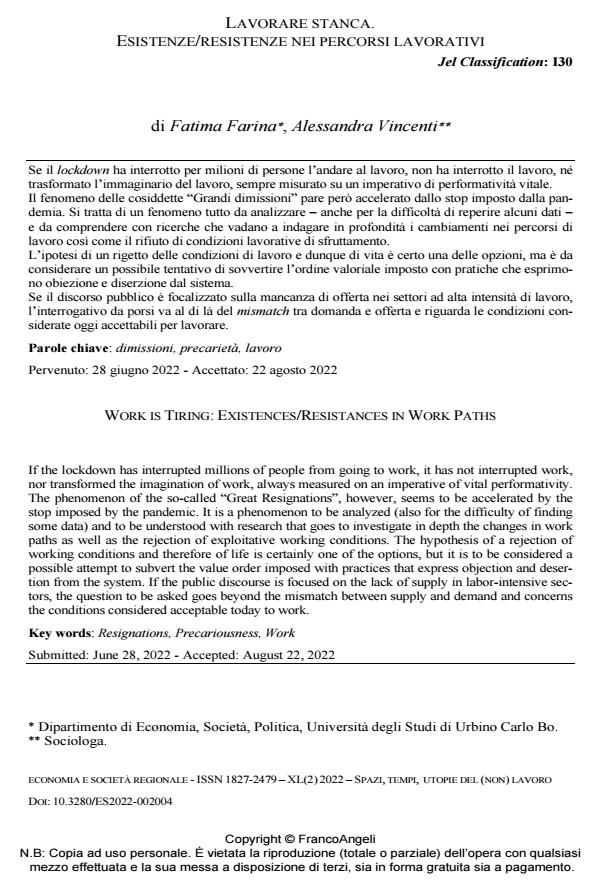Work is tiring: existences/resistances in work paths
Journal title ECONOMIA E SOCIETÀ REGIONALE
Author/s Fatima Farina, Alessandra Vincenti
Publishing Year 2022 Issue 2022/2
Language Italian Pages 11 P. 37-47 File size 261 KB
DOI 10.3280/ES2022-002004
DOI is like a bar code for intellectual property: to have more infomation
click here
Below, you can see the article first page
If you want to buy this article in PDF format, you can do it, following the instructions to buy download credits

FrancoAngeli is member of Publishers International Linking Association, Inc (PILA), a not-for-profit association which run the CrossRef service enabling links to and from online scholarly content.
If the lockdown has interrupted millions of people from going to work, it has not interrupted work, nor transformed the imagination of work, always measured on an imperative of vital performativity. The phenomenon of the so-called “Great Resignations”, however, seems to be accelerated by the stop imposed by the pandemic. It is a phenomenon to be analyzed (also for the difficulty of finding some data) and to be understood with research that goes to investigate in depth the changes in work paths as well as the rejection of exploitative working conditions. The hypothesis of a rejection of working conditions and therefore of life is certainly one of the options, but it is to be considered a possible attempt to subvert the value order imposed with practices that express objection and deser- tion from the system. If the public discourse is focused on the lack of supply in labor-intensive sec- tors, the question to be asked goes beyond the mismatch between supply and demand and concerns the conditions considered acceptable today to work.
Keywords: Resignations, Precariousness, Work
Jel codes: I30
Fatima Farina, Alessandra Vincenti, Lavorare stanca. Esistenze/resistenze nei percorsi lavorativi in "ECONOMIA E SOCIETÀ REGIONALE " 2/2022, pp 37-47, DOI: 10.3280/ES2022-002004